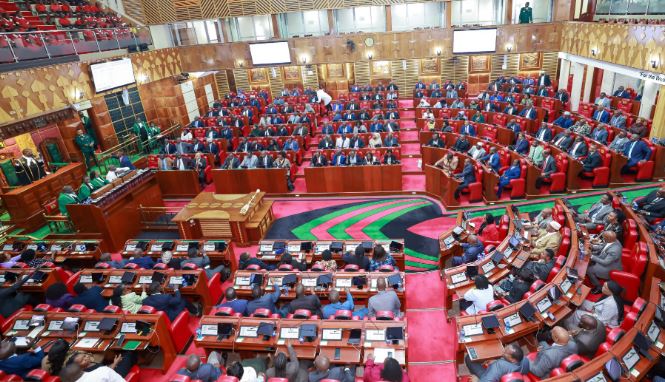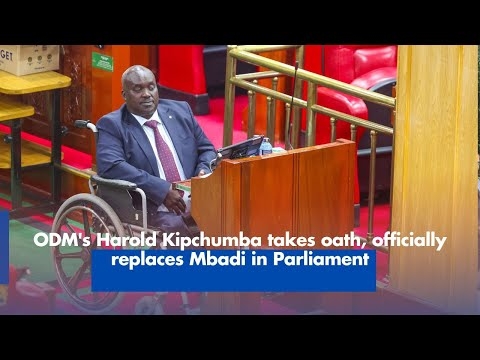

It was a busy week in Parliament as MPs intensified efforts to combat rising youth gambling addiction, bolster ethical standards in public service, and called for inclusive financial development in marginalised regions.
MPs rallied behind the newly mediated version of the Gambling Control Bill (National Assembly Bill No. 70 of 2023), which proposes sweeping reforms to Kenya’s gambling sector.
The bill, now nearing full legislative approval, seeks to impose tighter restrictions on betting, casinos, lotteries, and prize competitions, in response to growing concern over the gambling crisis among Kenyan youth.
At the heart of the legislation is the proposed creation of the Gambling Regulatory Authority of Kenya, which will replace the current Betting Control and Licensing Board (BCLB).
The new authority will be responsible for licensing, regulation, and enforcement in the industry.
Kinangop MP Kwenya Thuku, who tabled the motion for adoption of the Mediation Committee’s report, underscored the urgency of the reforms, warning that gambling was derailing the lives of countless young people across the country.
“Many have abandoned productive economic activities in pursuit of a false hope of instant wealth,” he said.
Dagoretti North MP Beatrice Elachi added that the bill should include a minimum gambling age of 21, similar to alcohol regulations. “Just the way we’ve done with alcohol — that 21 age limit should also apply here,” she emphasised.
Parliament also welcomed a new member this week. Kipchumba Harold Kimuge was sworn in as a nominated Member of the National Assembly, filling the seat left vacant by John Mbadi, who joined President William Ruto’s Cabinet as the Treasury CS on July 24.
Kimuge, 61, hails from Baringo County and is widely known for his advocacy on disability rights and polio immunization.
Nominated by the Orange Democratic Movement (ODM), his entry into the 13th Parliament has been welcomed across the political divide.
Another major legislative milestone this week was the signing into law of the Conflict of Interest Bill, 2023 by President William Ruto.
The new law repeals the Public Officer Ethics Act (Cap. 185B) and introduces a unified framework to manage conflicts of interest in public service.
The Act prohibits public officials from using their positions for personal gain, receiving undue influence from outside job offers, or entering into contracts with agencies they oversee.
It mandates mandatory recusal in instances where officials face a potential conflict and places enforcement under the Ethics and Anti-Corruption Commission (EACC).
The law also outlaws preferential treatment, ownership interests in public contracts, and dual employment that compromises public duties—strengthening accountability and public trust.
Meanwhile, Eldas MP Adan Keynan raised concerns over the lack of financial infrastructure in Northern Kenya. He urged the government to prioritise the expansion of banking and financial services in the region to support inclusive growth.
“There has been a shortage of adequate banking and financial institutions in Northern Kenya,” Keynan noted, calling on the Departmental Committee on Finance and National Planning to outline steps being taken to address the gap.
He emphasised that improved access to financial services would help pastoralist communities and small-scale traders in the region unlock economic potential and build resilience.















